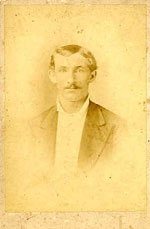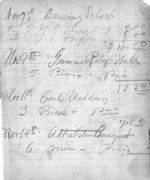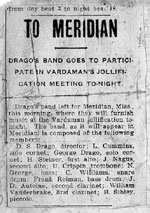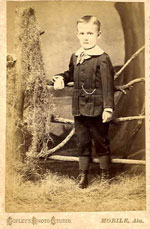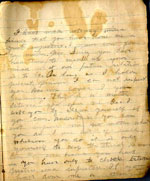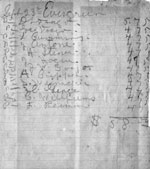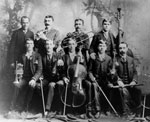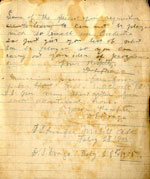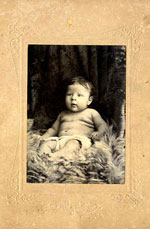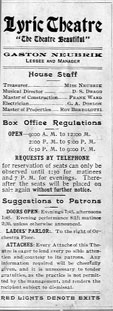Drago Band
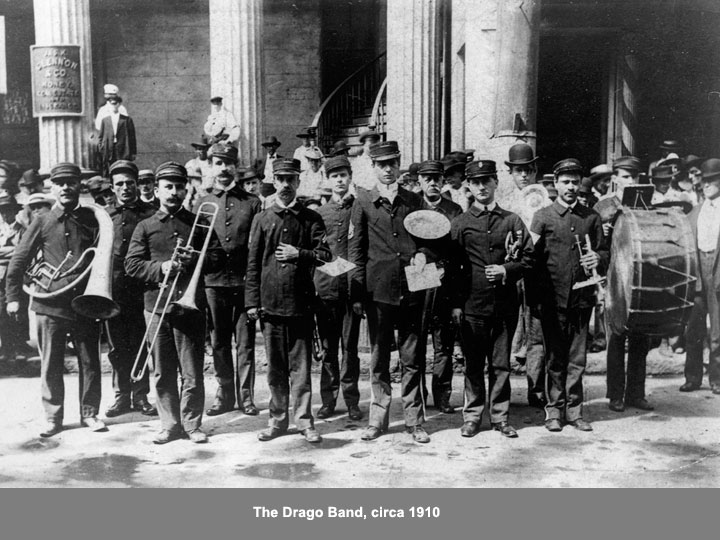
The Drago Band, circa 1910
The Drago Band was one of Mobile, Alabama's, most beloved institutions. The group
played for just about every event and every organization in the city. George Washington
Drago (1840-1891), known for his musical proclivities, founded the Drago Band around
1883. All of George's sons and his eldest daughter Eloise played in the band, as did
other members of the community. Until 1918, the group put on three concerts a week
during the summers in Bienville Square. George's son, Daniel Smith Drago (1875-1918)
became leader of the group at the age of fifteen shortly before his father's death.
As much as they may have wanted the band to be their only job, members were forced
by circumstances to seek other employment. Dan, for example, also taught music. His
father George worked at various times as a clerk, a policeman, a bartender, and a
sanitation inspector. A Drago son-in-law, Lee O. Cummins, became conductor of the
band after Dan Drago's death in 1918. The band's fortunes began to decline as the
"talkies" and other forms of music captured the public's imagination. No record of
the band remains after 1938.
Click on an image to see it larger
William L. Drago was the fourth of five children born to Frank Drago and Louisa Eliza
Drago (nee Torrans). He was born in Mobile in 1845 and died in 1881.
This document demonstrates how popular the Drago Band was. In it, Dan Drago lists
four engagements between November 7 and November 14. During that week members of the
band appeared at the German Relief Hall and played for the Athelston Club's banquet,
at a wedding, and at a dance school.
Notice of the Drago Band's trip to Meridian, Mississippi, to entertain during a "jollification"
held for former Mississippi governor James Vardaman. A jollification is a kind of
boisterous celebration.
Lee O. Cummins, the Drago Band cornetist, as a young man. Cummins married Nellie Drago,
the sister of Dan and George Edward. At the time of his marriage he was a musician
with the Monroe Park Theatre.
An angry letter from Dan Drago to his mother. It is unclear whether this is a draft
or the final product, what the issue was between the two, or whether it was ever seen
by Mrs. Drago. Click on the image for a transcript.
A page from Dan Drago's journal showing the payment each band member received for
a night's performance.
The Drago Band, 1890. Standing from left to right are: George Washington Drago, founder
of the band; Daniel Patrick Brown; August Buerger; and Walter Drago. Seated left to
right are: William Drago, John A. Kern, Gordon E. Taylor, Daniel Smith Drago, and
C. C. Cousins.
Monroe Park about the time that Lee O. Cummins worked there as a musician. On the
left side of the image is the outdoor theatre.
Dan Drago's reply to someone who has requested music not easily played by his band.
He also lists prices for an evening's performance. Click on the image to see what
they were.
A photo of George Edward Drago Sr., 1880. George was the youngest son of the Drago
family. He started playing with the band while still in his teens. He was born in
1880 and died in 1928.
Evidence of Dan Drago's need for outside work. Here he is listed as the musical director
for the Lyric Theatre—“the theatre beautiful."




